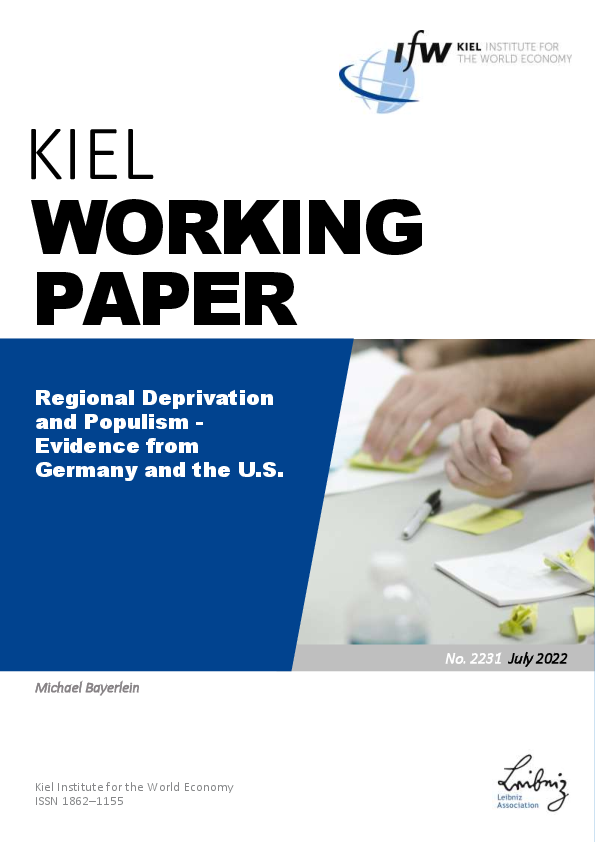Working Paper
Regional Deprivation and Populism - Evidence from Germany and the U.S.
Authors
Publication Date
JEL Classification
Key Words
Related Topics
Germany
USA
Globalization
A widely held view is that increasing globalisation and inequality are fostering support for populist actors. Surprisingly, when focusing on Germany and the U.S., populist voting is highest in less globalised regions with rather equal income distributions. Addressing this puzzle, I ask how the regional variance in populist voting can be explained. In my answer, I introduce the concept of spatial inequality, which describes the regional inequality within countries, and construct a measure of public goods scarcity. I argue that the spatial inequality induced feeling of being left behind is positively correlated with populist voting and that this effect is mitigated by public goods provision. Using county level data to develop spatial inequality and public good scarcity indices, I can provide empirical support for these arguments. The findings have important implications for understanding the sub-national variance in populist voting and the role of relative economic deprivation as well as public goods provision.






